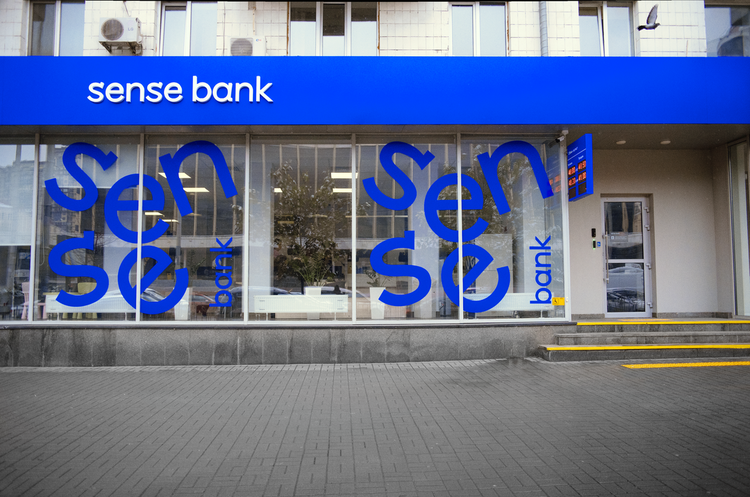Nationalisation of Sense Bank: Lawsuits in international courts are unlikely to be avoided
Their number can be reduced even before a decision on the bank's future is made

Recently, the news has once again stirred up the information space with the announcement that Ukraine will soon nationalise Sense Bank. Rumours had circulated before about even who would lead the financial institution after its transition into state ownership. If indeed this process is initiated, Ukraine should be prepared for a potential response from the bank's shareholders, particularly those not affected by international and national sanctions. What Ukraine can do now to reduce the number of potential lawsuits, Taras Dumych, managing partner of the Ukrainian office of the international law firm Wolf Theiss, told Mind.
Read also: Sense Bank is on the brink of nationalisation. MPs passed a new law allowing the transfer of the bank to the state
The situation with Sense Bank is a task with many unknowns for the state. This is despite the fact that, from the political point of view, this situation may be presented in oversimplified terms.
Nationalisation will also affect non-sanctioned shareholders
Furthermore, apart from the apparent fact that the bank's shareholders under sanctions do not control the bank's operations, having entrusted management to an NBU-appointed representative, there are also shareholders not subject to sanctions. This primarily concerns Italian Unicredit, which indirectly owns nearly 10% of the shares.
Therefore, when considering the question of possible nationalisation, state authorities must take into account the factor of all shareholders. Although recent changes to the law regarding bank nationalisation procedures were indeed made with a focus on Sense Bank, the law does not provide a solution regarding what to do with Unicredit's shares. If nationalisation occurs at the level of Ukraine and there is no other instrument within the NBU, Unicredit will most likely be unable to avoid nationalisation.
Regarding shareholders currently under sanctions, indeed, when the active sanctions are lifted (and this process is difficult to predict both in terms of timing and outcome), they might consider filing claims for either the return of the bank or compensation for the value of their investments.
Although, based on the existing limitations in current Ukrainian legislation, such compensation does not seem possible for russian beneficiaries. It is currently unclear how this situation will be regulated in the future.
Read also: Gentle nationalisation: How Alfa-Bank shareholders are trying to make Sense of it
Nationalising a systemically important bank could have a negative impact on Ukraine's reputation
The potential nationalisation of Sense Bank poses a challenge for the NBU (National Bank of Ukraine) as a regulator and for the state as a whole in terms of financial stability and the bank's profitability. Currently, the bank remains stable and profitable, even in its hybrid state under NBU-appointed management.
However, if the bank's financial condition deteriorates after nationalisation or if other issues arise that are common to state-owned companies, the act of nationalising the bank itself becomes a reputational risk for the country.
Nationalisation of assets, such as banks, is a sovereign right of states, recognised by international law and stipulated in various international agreements, including bilateral investment protection treaties. But such nationalisation requires compensation for investors' losses.
If Sense Bank's shareholders seek compensation for their losses, it is not excluded that the state may adopt two different approaches for the two groups of shareholders. One approach might apply to shareholders subject to sanctions, while another approach could apply to Unicredit and potentially The Mark Foundation for Cancer Research, which owns around 4% of the bank's shares.
Read also: Nationalisation of systemically important banks: What the market should expect
The nationalisation of one bank will raise questions about businesses with russian origins
The potential issue of returning the bank or compensating its shareholders is a long-term matter, and its resolution could span years.
Considering the political cycles in Ukraine, it's unlikely that the current government officials holding positions at various levels and who might be involved in the decision-making regarding potential nationalisation will still be in power when this matter is decided. Therefore, it's crucial that any decisions made now adhere to both the current legislation of Ukraine and international law.
Furthermore, in future disputes concerning the fate of Sense Bank, questions about other businesses, especially significant ones that continue to be owned, including indirectly, by russian shareholders, could also be considered.
The fact that these businesses haven't been nationalised could be used as an argument that the decision to nationalise the bank was based on selectivity, which could also infringe upon the rights of its shareholders.
The OpenMind authors, as a rule, are invited experts and contributors who prepare the material on request of our editors. Yet, their point of view may not coincide with that of the Mind editorial team.
However, the team is responsible for the accuracy and relevance of the opinion expressed, specifically, for fact-checking the statements and initial verification of the author.
Mind also thoroughly selects the topics and columns that can be published in the OpenMind section and processes them in line with the editorial standards.





